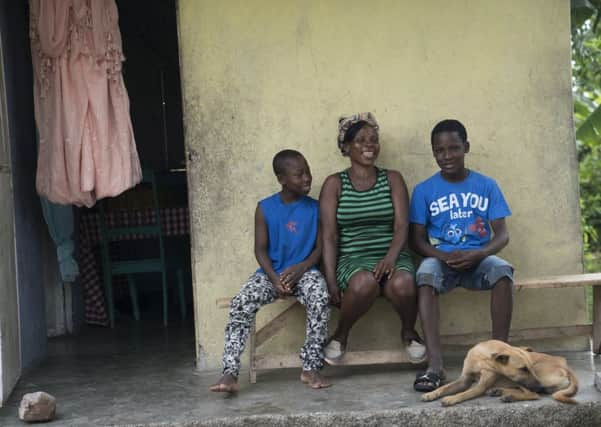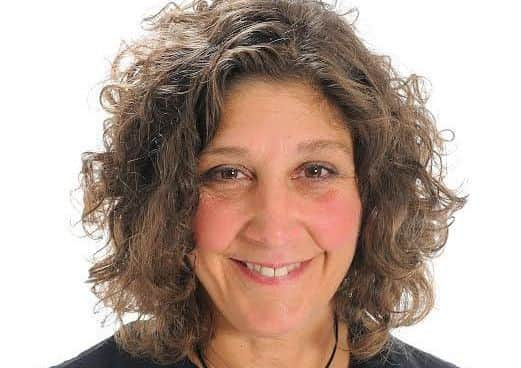Sally Foster-Fulton: Christian Aid brings calm after the storm


This Christian Aid Week (13-19 May) we hear stories from Haiti, where repeated natural disasters, often exacerbated by climate change have resulted in thousands of people being forced to flee from their homes – with 38,000 people still displaced eight years after the devastating earthquake that hit the capital, Port-au-Prince.
Despite the resilience and strength of its inhabitants, the country – one of the poorest in the world – has struggled to recover as it continues to face relentless earthquakes, storms and hurricanes, with many living in precarious housing or temporary shelter.
Advertisement
Hide AdAdvertisement
Hide AdWhen Hurricane Matthew hit in 2016, it destroyed 90 per cent of some areas. While Haiti narrowly escaped disaster when Hurricane Irma swept across the Caribbean last year, it’s only a matter of time before the next hurricane strikes.


Each time, people lose their dwellings and livelihood, making it increasingly hard to rebuild.
Ahead of Hurricane Matthew, KORAL, Christian Aid’s partner in Haiti, was able to warn local communities, help evacuate around 5,000 families, and saved many lives. In the immediate aftermath, Christian Aid and KORAL distributed urgently-needed shelter kits, hygiene kits, seeds and cash transfers.
Importantly though, the disaster-proof houses that KORAL had built after the earthquake were not only still standing but helped the community to build resilience to these storms.
One of these houses belonged to Vilia. Her home was destroyed by the earthquake that hit the country in 2010. She also lost her mother and other family members and became displaced within her own country. The new house offered a new start for Vilia, but it’s done more than that; it’s been a safe haven for dozens of people when they needed it most.
When Hurricane Matthew hit, Vilia’s neighbours quickly realised that her house was the only one in the area sturdy enough to cope with the hurricane. One by one, they sought safety with her.
As the storm and the rains raged on, she opened her home in solidarity with her neighbours – 54 people sharing food and safety for several days – strong communities reaching out to one another.
Every year during Christian Aid Week, thousands of our fantastic supporters across Britain will be going door-to-door delivering red envelopes, taking part in sponsored walks, swims and bike rides, hosting coffee morning and bake sales, cooking up Big Brekkies and organising book sales. In Scotland alone, more than 1,000 churches of all denominations take part. The money raised will fund partnerships and projects that help lift people out of poverty and also go to support people who find themselves displaced within their own country, often being denied the official protection given to refugees, not only in Haiti, but globally.
Advertisement
Hide AdAdvertisement
Hide AdThe reasons for their displacement are many: conflict, flooding, drought, fear. Torn from their homes, their families and their communities, displaced people are among the most vulnerable to poverty and exploitation.
At Christian Aid, we believe each one of us deserves respect and care. We believe all people should be protected from harm and have a chance to rebuild their lives. That is why, in the run up to Christian Aid Week, we are asking the UK Government to pressure the UN and member states to ensure that the two new agreements on refugees and migration now being worked on offer a fair solution to help support and protect the 40 million displaced within their own borders. We believe that any deal that does not include internally displaced people will be a huge failure.
Poverty is an outrage against humanity. It robs people of their dignity and lets injustice thrive. But together, this Christian Aid Week, we have the power to transform lives.
This Christian Aid Week, people can help to change the lives of people displaced due to disasters or conflict by donating online at www.caweek.org, calling 08080 006 006, or texting ‘GIVE’ to 70040 to give £5. To read more about our campaign to support and protect internally displaced people please go to www.christianaid.org.uk/index.php/campaigns/uprooted-overlooked
Sally Foster-Fulton, head of Christian Aid Scotland.